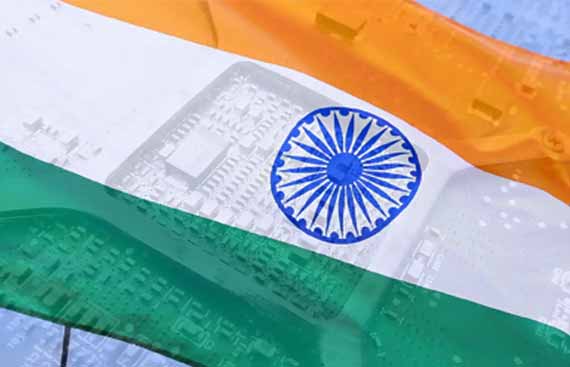Indian Enterprises Invest in Cybersecurity Retailers Leverage Technology for Business Resilience

Bharat Bytes is Computerworld India’s regular round-up of news from the world of IT
FREMONT, CA: In India, mobile broadband will serve as the foundation for the government's 'Digital India' initiative. As service providers in India prepare to launch 5G this year, mobile networks in India continue to play a critical role in driving social and economic inclusion. In India, 4G is the dominant subscription type driving connectivity growth. While 4G accounts for approximately 68 per cent of total mobile subscriptions in India, its share is expected to fall to 55 per cent by 2027. 4G subscriptions are expected to decline annually to an estimated 700 million in 2027 as subscribers migrate to 5G following the launch of 5G in India. Commercial 5G network launches in India are planned for the second half of 2022, with enhanced mobile broadband being the primary use case. With approximately 500 million subscriptions, 5G will account for approximately 39 per cent of mobile subscriptions in the region by the end of 2027. The average data traffic per smartphone in India is the second highest in the world. According to the release, it is expected around 50GB per month in 2027, representing a 16 per cent CAGR.
According to a report, with the COVID-19 pandemic disrupting the sales process, approximately 73 per cent of sellers surveyed are using technology at least once a week to gain access to real-time data to drive sales. According to the LinkedIn sixth edition of the 'APAC State of Sales 2022' report, companies are increasing their appetite for data-driven insights to better gauge buyer intent and drive greater sales, especially amid the ongoing 'great reshuffle' when buyers and sellers are constantly considering shifting roles. More than eight out of ten (84 per cent) Indian sales professionals have lost at least one deal due to a key decision maker changing roles in the last year alone. As a result, access to relevant information has become mission critical for sales functions across the board, according to the report.
To avoid these consequences, three out of every four (73 per cent) sellers in India are now using sales technology at least once a week to gain access to accurate real-time data, indicating the industry's growing preference for CRM systems and sales intelligence tools.
A10 Networks has released a global study that reveals the challenges and priorities of enterprise organisations in today's post-pandemic era as we learn to live with COVID-19 and how this is shaping future technology requirements. Artificial intelligence and machine learning have undoubtedly matured as investment priorities, with 47 per cent of Indian enterprise organisations reporting that they have deployed these technologies in the last 12 months. In addition, 34 per cent have deployed IoT devices to assist with business functions. Surprisingly, when asked about the most critical technology for business resilience in the coming year, Indian respondents ranked artificial intelligence and machine learning first, followed by 5G technologies and a sizable proportion is also considering deploying IoT devices to assist business functions.
According to the release, nearly all (97 per cent) of the 250 enterprise organisations surveyed in India expressed high levels of concern about all aspects of enterprise digital resilience. With a greater emphasis on digital transformation, pharma companies in India are prioritising data security, according to a report by Deloitte Touche Tohmatsu India LLP and the Data Security Council of India, Indian pharma takes a digital leap. According to the report, the top cybersecurity concerns for the sector in India and globally are ransomware attacks and IP and data theft. According to a Deloitte India release, the pandemic and rising number of targeted attacks have prompted certain pharma companies to double their cybersecurity investments over the last 18 months. Along with data protection and resilience, pharma companies in India are focusing on identity and access management, OT security, offensive security capabilities, and better threat detection and response as part of their cybersecurity strategy. Furthermore, according to the release, 70 per cent of the leading pharma companies highlighted their focus on a zero-trust approach, with the need for a clear roadmap over the next two years, around network, data, and access.
